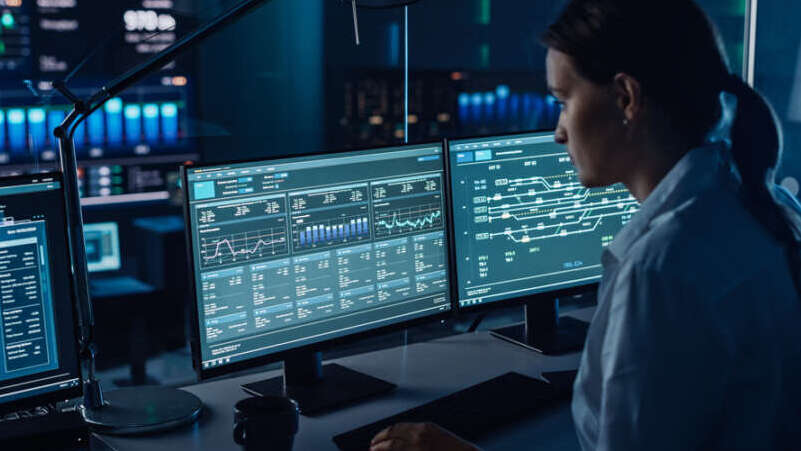
As the Federal government looks to upskill its technology developer workforce to take advantage of new AI capabilities, government officials on Wednesday explained a lot of that work comes down to simply “translating” technical skills they already know and applying them to AI.
At ManTech’s TechShare 2024 in Washington, D.C., David Carroll, the associate director for mission engineering at the Cybersecurity and Infrastructure Security Agency (CISA), explained that employees are often hesitant to try to learn new AI skills.
However, Carroll likes to remind them that they already have the technical know-how to learn these skills – and once you do, AI “becomes fun.”
“Generally in the engineering space, some folks come from a data-centric view [and] it’s not a hard walk to get them to the ML/AI side. It is a collaboration effort,” Carroll said. “All the technical skills that we’ve developed are foundational to AI, and folks don’t really connect the two. So, what we’ve been doing is a lot of, I wouldn’t call it reskilling, I’d call it translating – trying to make them understand that you’ve been doing this.”
“There’s a lot of trepidation, ‘Is this new? At this point in my career, do I want to learn this?’ I try to lead by example, I had to go back and learn it … and I try to explain that to them: I’m really glad that I took that time.”
Carroll explained that his teams typically know about 80 percent of what they need to know when it comes to AI, but that remaining 20 percent is just processing data in a “slightly different way.”
As part of CISA’s training efforts, he said the agency frequently collaborates with its Federal, state, local, and Tribal government partners to ask them, “What is your best practice? How are you training your folks at this agency?”
By gathering that information, Carroll said it not only helps CISA’s training efforts be better, but it also helps employees to “speak a common lexicon” across government.
Anna Rubinstein, the chief of responsible AI at the National Geospatial-Intelligence Agency (NGA), added that community collaboration is also important when it comes to partnering with industry and academia as well.
“I think there’s a lot that community collaboration can do in terms of establishing a common lexicon so that we all know what we’re talking about when we say the terms AI, ML, [and] computer vision,” Rubinstein said.
“I think industry is also probably going to be a little bit farther along than us in terms of how we can practically apply some of these tools and methodologies to the mission sets that we’ll have. So, I think there’s a lot we can get from industry,” she added. “And then in terms of academia, how do you engage with adult learners in effective ways so that they can illustrate what they’ve learned?”
ManTech’s Chief Digital Officer Chris Copeland agreed with the Federal officials, noting that AI upskilling and translating is “a team sport.”
“Everyone’s kind of in this boat together, if you will, really for the betterment of the nation. I think once you bring people together to help learn, they are interested in it, they want to learn more,” Copeland said. “The more that we can bring together … I think the interest just starts to snowball and then it just catches fire.”
